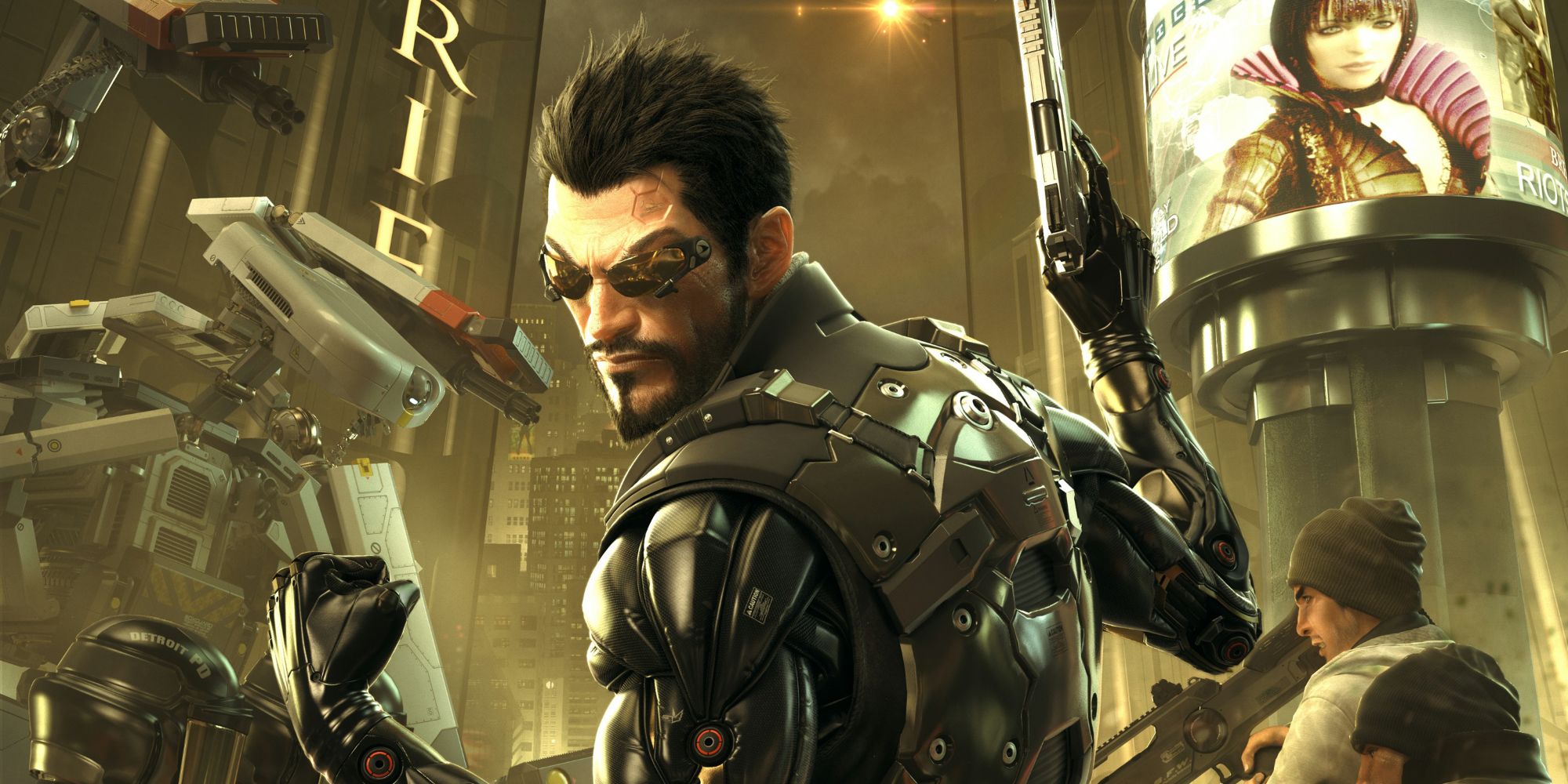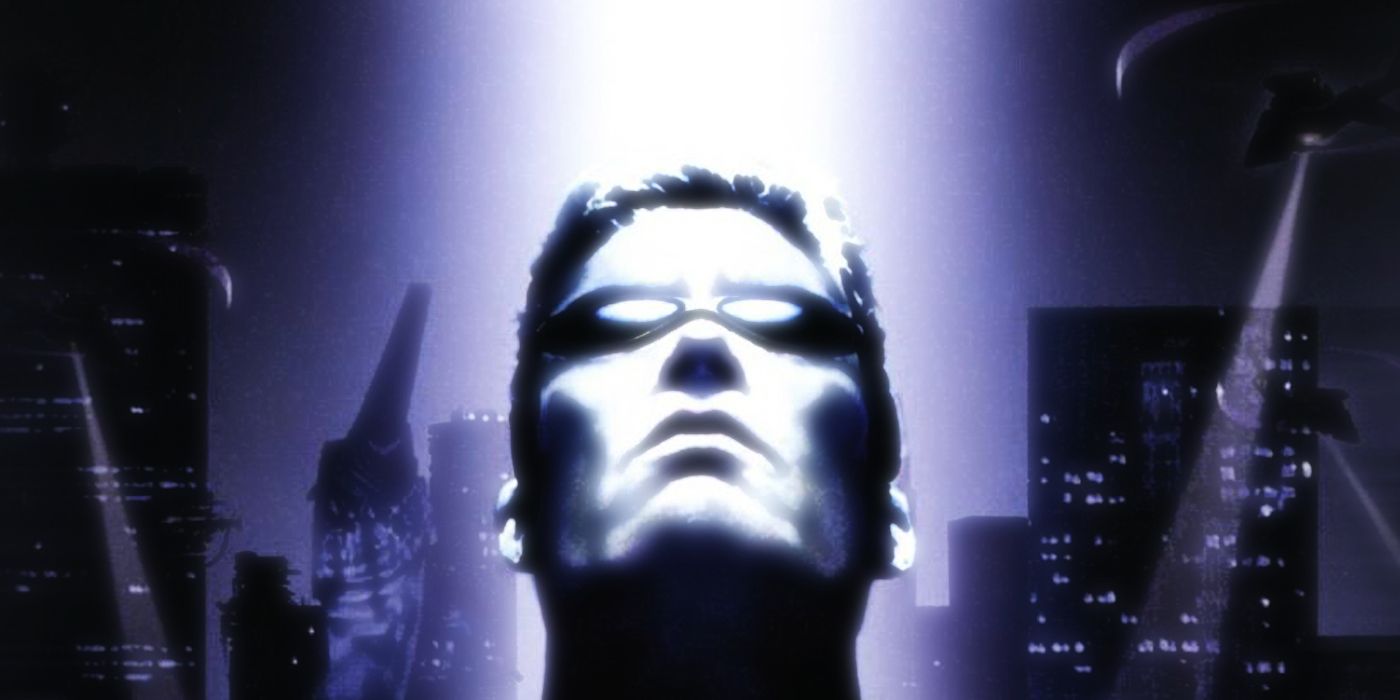Video games have a bit of a fascination with the Cyberpunk genre, whether it's full-on takes on the genre or just bits and pieces inspired by it. Cyberpunk 2077 is the latest entry, but its disastrous launch has left a lot of Cyberpunk fans wanting more.
There are plenty of choices out there, but one series is still the most ambitious vision of the Cyberpunk genre in games to date, Deus Ex. The original game helped set a new standard for choice in video games, giving players multiple ways to solve nearly every problem. In fact, Deus Ex's core design can clearly be seen as the template for Cyberpunk 2077.
Both aesthetically and thematically Deus Ex has done Cyberpunk the best, and it's a shame there aren't more games in the franchise. With the attention Cyberpunk 2077 has received, it's high-time Deus Ex makes a comeback.
Deus Ex Defined Cyberpunk In Video Games, and Still Can
Deus Ex shows a dark future where corporations and conspiracy theories rule the world, with groups like the Illuminati and the Knights Templar being real. The series sports many of the typical Cyberpunk themes like mechanical augmentation of the human body and a massive division in society between the rich and poor. The first Deus Ex and Invisible War did a great job of establishing the world, but Human Revolution in 2011 feels like when the series fully realized its potential.
Human Revolution presented a chrome world wrapped in hues of black and gold, where human augmentation has become the norm. Despite the brilliance of the world poverty and disease are rampant, and Human Revolution takes time to ask real questions, like the best pieces of Cyberpunk entertainment do. The biggest theme in Human Revolution is how much humanity do people give up by integrating technology into their lives. This doesn't just apply to futuristic augmentations, but technology in general, things like the internet and entertainment. Human Revolution may not carry this theme as far as it could, but it raises questions about how humans misuse technology.
Apart from story themes, Deus Ex has consistently nailed its gameplay. As mentioned before, Deus Ex set the foundation that Cyberpunk 2077 would build on, with a mix of shooting, hacking, exploration, and choice. Augmentations were a vital part of the experience, but you couldn't just outfit characters with anything. It's always been about prioritizing what works best for player's builds; is it better to see enemies through walls or have elbow blades for close-quarter combat. Players can use hacking for different approaches, whether it's breaking into a computer to find a clue for a quest, or taking control of a security turret. It'd be fascinating to see what Deus Ex could do with the upgraded technology available today, with a larger world and more robust set of options. Deus Ex has always excelled at immersing players in its Cyberpunk world and making it as believable and grounded as possible, even with its futuristic elements.
Despite both games being part of the same genre, Deus Ex and Cyberpunk 2077 couldn't feel more different. Cyberpunk 2077 has a gritty edge that's about making the world feel "hard" and dangerous. It puts the worst of humanity front-and-center but doesn't always match the tone that a lot of the Cyberpunk genre goes for, despite having themes like corporate rule. Deus Ex, on the other hand, is often more concerned with lore and world-building. It might not be fair to say Deus Ex is more "thoughtful" than Cyberpunk 2077, but it at least takes the time to raise more questions and puts Cyberpunk to shame in terms of tone and style. With the Cyberpunk genre more popular than ever, now would be the time to capitalize with a new Deus Ex that's really ambitious.


